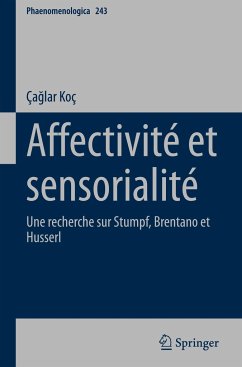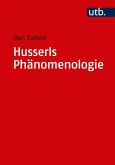This book deals with the works of three philosophers: Carl Stumpf, Franz Brentano, and Edmund Husserl. It focuses on texts that concern affectivity, valuation, and classification of feelings. The author's interest is particularly centered on sensory feelings. Taking as a common thread the experience of pain and the case of masochism, the author attempts to put forward an original problem, with the help of which he succeeds in showing the advantages of Husserl's position concerning sensory feelings in relation to the positions of Stumpf and Brentano. The study aims to bring phenomenology and descriptive psychology into dialogue with the philosophy of mind as well as with contemporary debates on pain and pleasure in the philosophy of emotions. However, the purpose of this study is not only to inquire about sensory feelings. The more general task is to bring to light the structure of affective consciousness according to the three philosophers. The originality of this book lies in the fact that it seeks to reach the subtle differences between our feelings on the basis of an affective phenomenology, of Husserlian inspiration. It presents a new exegesis of Husserl's manuscripts on feelings and appeals to researchers and students in the field.








